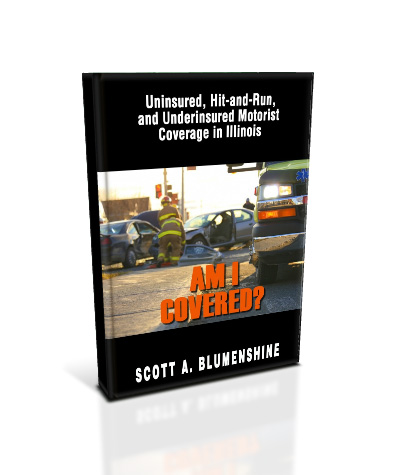The police accident crash report will play a role in your injury claim. There are many ways the police accident report will affect your insurance claim. The question is whether it will cause you to win or lose your case.
While police reports are not generally admissible at trial, they can play an outsized role when negotiating a settlement for your claim with an insurance company.
In many cases, the accident report will be considered by investigators to be the best evidence of how an accident occurred and who is at fault. Insurance adjusters often rely on the accident report to decide whether to settle, deny, or lowball an injury claim.
If you were injured in an accident, the contents of the accident report could make an enormous difference in whether you recover full and fair compensation for your injuries. Therefore, it is important to see if the report accurately reflects what happened in the crash. It’s not what an attorney can do to influence the insurance company in your favor.
Why Police Reports Are Done
Under the law, police officers must investigate and file reports of auto collisions with injuries. When the police arrive at the scene of an accident, they should ideally do a complete investigation. The thoroughness of that investigation will depend on the circumstances and the officer, but there are basic details that each report should contain.
After leaving the accident scene, the responding officer will use the information they recovered at the scene of the accident and submit it in the form of a formal report. This report becomes publicly available. The report is an essential item in an injury claim file.
Information Included in an Accident Report
To understand why a police accident report is important to your personal injury case, it is helpful to know what information is included in reports. Police reports include the following information:
- Time, date, and location of the accident
- Identifying information for the drivers
- Insurance information for the drivers
- Weather conditions
- Witness names and contact information
- Description of the damage to each vehicle
- Whether any citations were issued by the officer
- Diagram of the accident
- Narrative regarding how the accident occurred
A police report can include much of the important information needed for your personal injury claim. Your legal counsel will use this information from the police report to start your claim. These reports are an important part of the personal injury claim process.
Police Reports vs. Motorist Crash Reports
The police report is the publicly filed document prepared by the officer who responds to your accident. While these documents are important, it is not your responsibility to ensure that the report is completed and filed. Illinois law does require motorists to submit their reports independently of the police report. These are known as Motorist Crash Reports.
Drivers are required by law to submit these reports to the Illinois Department of Transportation within ten days of the crash. The primary purpose of these Illinois Motorist Reports is to ensure that drivers have liability insurance coverage. There is no evidence.
What a Police Report Can Mean to Your Case
Your attorney and the other driver’s insurance company will obtain a copy of the police report. The insurance adjuster for the other driver will review the report. In many cases, they will rely on little more than the report and an interview with their insured driver before they decide on accepting or rejecting your claim. The contents of a report are thus important to your personal injury case.
Sometimes the insurance adjuster will go beyond the scope of the police report and identify other evidence the police did not locate. That said, the police report is usually the most important factor in determining if the other insurance company will accept liability for your car accident injuries.
Police reports are especially important if the police assign fault. While not required, many officers choose to identify who they believe caused the crash. Sometimes this is backed up with a citation for a moving violation issued to the offending driver.
When the Police Report Is Not Favorable To You
There are cases when the narrative or diagram of the police report is not favorable to your personal injury case. For example, the responding officer could have inaccurately reported the locations or movements of the vehicles. The officer may have assigned blame to you for the accident even if you believe you are not responsible. You may have been unconscious or seriously injured so you could not have given the officer your version of the incident.
It is important not to panic or despair if the police report finds you at fault.
First and foremost, the report is not admissible in evidence. Secondly, police reports frequently have mistakes. It is not uncommon for the responding officer to have vehicle movement and locations incorrectly reported. Such a mistake may make it look like you were at fault, even if you weren’t. The good news is that a police report is not typically admissible in court.
Even if the report is accurate, the officer’s unfavorable opinion will not necessarily doom your injury claim. Officer opinions are subjective and usually based on second-hand information. When they do, it can be a case maker or breaker. You have the right to pursue a personal injury claim even if the officer found you at fault. Your attorney could advise you on how best to seek compensation under these circumstances.
When The Report Does Not Assign Fault
Police reports typically assign fault, but not always. Sometimes officers leave their opinion out of it if they cannot conclude. The contents of a police report could still be valuable to your injury case, even if there is no finding of fault against the other driver. The information provided by the report could help your attorney build a strong liability case regardless.
Common Problems in an Accident Report
There are some common complications caused by an inaccurate police accident report. While these reports are often a useful part of your personal injury case, an error in the police report could negatively impact your chances of financial recovery.
More important, is the testimony of the parties throughout the process of the collisions. Even after the officer who responded to your accident submits the report, they have the power to make changes.
Securing an amendment to the police report is easier said than done. Many police officers are not interested in doing more paperwork, even when it is clear they have made a mistake. The attorneys at Blumenshine Law Group can help you seek a correction to the police report in your accident case. The following circumstances could change the way a police report impacts your personal injury case. Vehicle damage can also be important in showing the angle of impact and sometimes the severity of the impact.
1. Omission of Facts
There are times when the police officer omits an important fact unintentionally. These omissions are possible given that the responding officer arrives at the collision the injured party may be unconscious or disabled, and the report is done after the collision. As time elapses, important details could slip from the officer’s mind.
2. Errors
In addition to omissions, some officers simply make mistakes in their reports. This could include inaccurate contact information or misidentifying a witness as a participant in the collision.
3. Incomplete Reports
Officers who respond to many collision scenes deal with the chaos of the scene. There are vehicles, backed-up traffic, ambulances, paramedics, and most importantly the injured person or persons. In some cases, this could cause an officer to fail to fully and accurately complete an investigation.
4. Lack of Follow-Up
The details of an accident might not be immediately available at the scene of the crash. For example, the police might not interview a critical party to the accident because they were rushed to the emergency room. If the officer fails to follow up with that witness, the report could be missing vital information.
How a Skilled Attorney Can Overcome a “Bad” Police Report
A skilled attorney can overcome unfavorable information in a police report. Often, the errors in a police report stem from a lack of evidence. Your attorney could perform an investigation of the vehicles or the crash site to develop additional evidence.
Your attorney will have the opportunity to cross-examine witnesses and establish what happened during your collision. If the case goes to court a committed attorney will want the opportunity to review the documents.
Discuss the Accident Report with an Attorney
If you have suffered injuries in a car accident, the police report will play an important part in your personal injury case. The insurance adjuster handling your claim might rely exclusively on this report when deciding to accept or reject your case.
Even if the police report does not persuade the insurance adjuster to accept your claim, your attorney could use the information included in the report. Identifying witnesses and securing insurance information are only two of the aspects that make these reports invaluable.
Our attorneys understand the value of a police report and are prepared to make the most of it in your case. If you have questions about how we could help you secure compensation for your injuries, call or text Blumenshine Law Group at (312)766-1000 through email [email protected] today for a free consultation.


